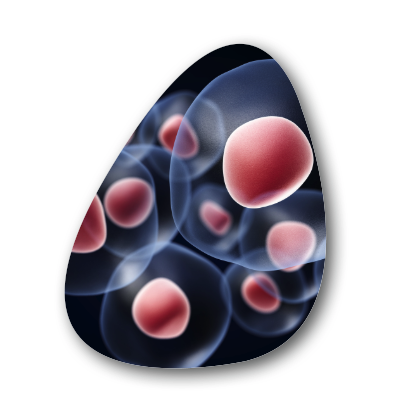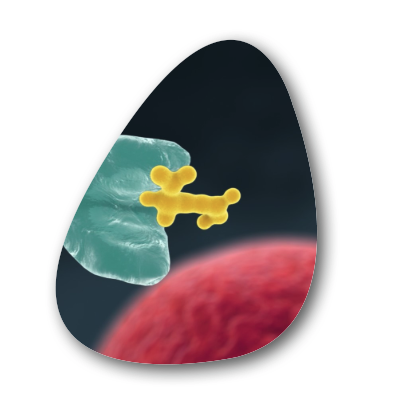Science
ALDH family
Aldehyde Dehydrogenases (ALDHs) belongs to a family of enzymes that play a key role in the metabolism of endogenous and exogenous aldehydes. This group of intracellular enzymes plays a pivotal role in embryogenesis and cell differentiation as well as in cancer progression by mediating retinoic acid signalling. Their functional activity also extends to cellular redox homeostasis via detoxification of reactive aldehydes derived from lipid peroxidation and other metabolic processes thus, playing a major cytoprotective role in cells.
The importance of ALDHs, notably ALDH1 and ALDH3, is r emphasized by the fact that the enzyme is elevated in multiple cancer types and it is associated to poor prognosis, high tumorigenic potential and drug resistance. In addition, the enhanced activity of ALDH is a well-established marker used to identify and isolate various types of cancer stem cells, which are thought to be the main responsible of tumour refractoriness and relapse.


Mechanism of Action
ABD-3001 a First-in-Class inhibitor
ABD-3001 is a suicidal inhibitor of ALDH1 and 3. It blocks the enzyme activity irreversibly causing rapid accumulation of reactive aldehydes in tumour cells, beyond critical threshold. The accumulated aldehydes, notably HNE and MDA form genotoxic adducts with protein and DNA affecting the oncogenic signalling pathways that participate in cell proliferation.
In parallel, glutathione (GSH) crosslinks with HNE in order to expel it from the cell. The sustained engagement of GSH in the detoxification of HNE causes intracellular depletion of GSH and consequently a redox unbalance that generates further oxidative stress. This vicious cycle is perpetuated by more free radical generation and new formation of toxic aldehydes as by-products of lipid peroxidation, causing deleterious effects and cell death through apoptosis and ferroptosis.
Nowadays, anticancer approaches targeting cancer metabolism faces many challenges,
- To find the therapeutic windows to prevent toxicity to normal tissues.
- to overcome the resistance of cancer cells that arise from either a new metabolic rewiring or due to the tumour intrinsic heterogeneity.
ABD-3001 represents a disruptive approach that is not aimed to exploit the nutritional addictions of cancer cells but rather the equally and critical necessity of cancer cells to get rid of the toxic metabolites. This approach promises to be more difficult to be circumvented with a metabolic rewiring of cancer cells. At the same time, it abrogates the chemoresistance advantages that ALDH confers to tumour cells.